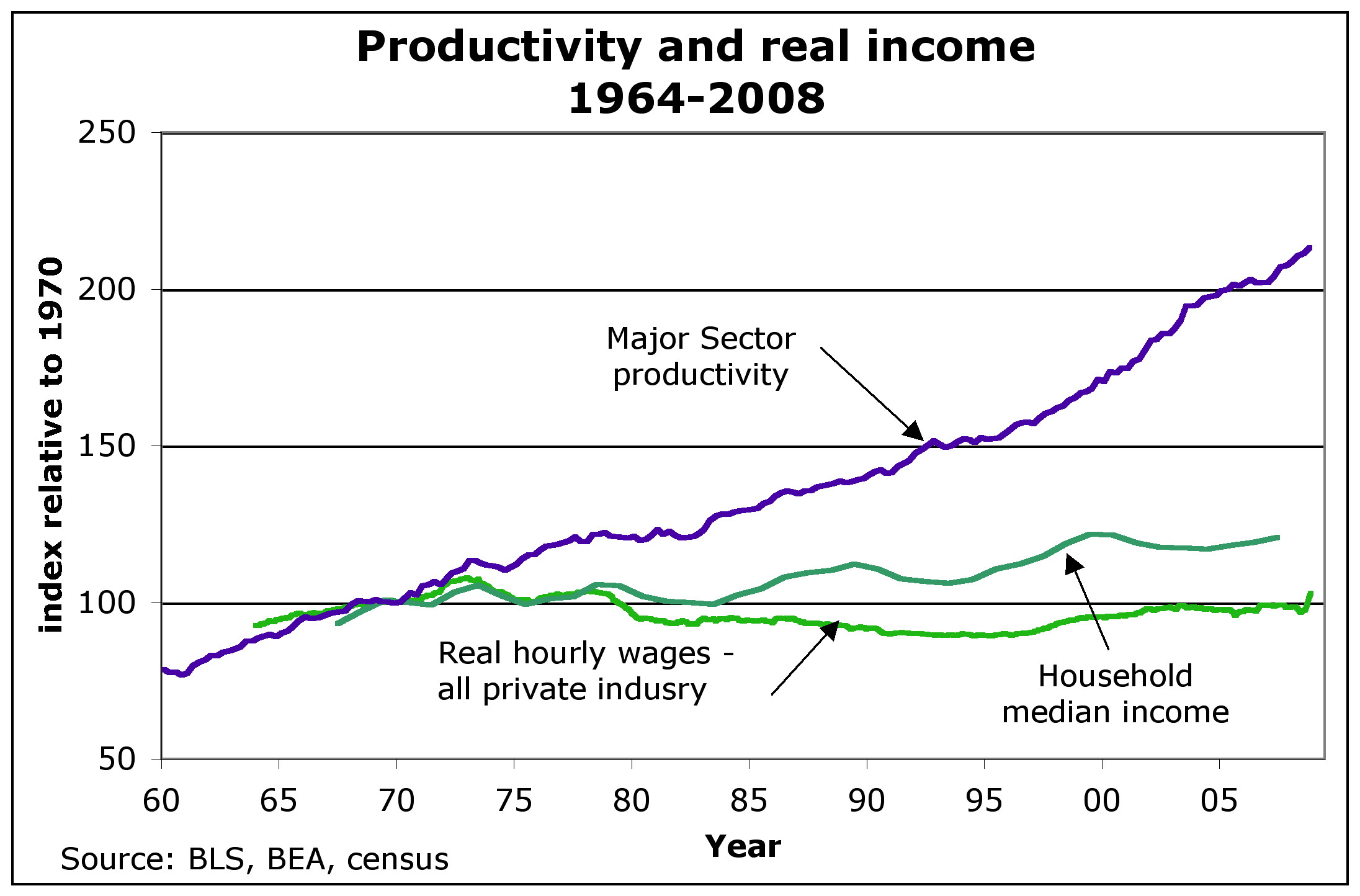General Discussion
Related: Editorials & Other Articles, Issue Forums, Alliance Forums, Region Forums"wage rates...have to be related to productivity" - Dave Brat (teabag)
If so, the tables should be turned 180 degrees.
Laborers should be paid executive wages and vice-versa.
I have never worked for an executive who works as hard as a laborer.
http://www.huffingtonpost.com/2014/06/11/dave-brat-minimum-wage_n_5483980.html
Brat, from an interview with Chuck Todd:
BRAT: I'm just making the case I just made that you can't artificially make up wage rates, they have to be related to productivity.
BuelahWitch
(9,083 posts)Grandstanding against the ACA again and again is hardly productive. So is shutting down the gov't.
pnwmom
(108,955 posts)Why aren't employers supposed to compete for employees just as employees are expected to compete for jobs?
With non-compete clauses, too many employees are boxed into their current jobs because they are prevented from using their talents somewhere else.
The employers insert these clauses so they don't have to work to keep the employees the old-fashioned way -- with good benefits and salaries.
MANative
(4,112 posts)and as an observer in at least a half-dozen others in my former role in corporate HR, I can tell you that they aren't as difficult to beat as some will tell you they are. They are also typically only used in higher-level roles, most often at VP and above, or when an employee has direct and material access to highly proprietary info or process. There are usually rather generous "parting gifts" involved in those circumstances. One exec that I worked with last autumn got eighteen months salary and the non-compete voided. I personally hate the idea of non-competes and usually counsel corporate clients not to bother with them. They can be much more trouble than they're worth, on both sides.
pnwmom
(108,955 posts)And an employee might not even realize she's bound by one -- unless a job offer gets withdrawn.
http://www.nytimes.com/2014/06/09/business/noncompete-clauses-increasingly-pop-up-in-array-of-jobs.html?_r=0
BOSTON — Colette Buser couldn’t understand why a summer camp withdrew its offer for her to work there this year.
After all, the 19-year-old college student had worked as a counselor the three previous summers at a nearby Linx-branded camp in Wellesley, Mass. But the company balked at hiring her because it feared that Linx would sue to enforce a noncompete clause tucked into Ms. Buser’s 2013 summer employment contract. Her father, Cimarron Buser, testified before Massachusetts state lawmakers last month that his daughter had no idea that she had agreed to such restrictions, which in this case forbade her for one year from working at a competing camp within 10 miles of any of Linx’s more than 30 locations in Wellesley and neighboring Natick. “This was the type of example you could hardly believe,” Mr. Buser (pronounced BOO-ser) said in an interview.
MANative
(4,112 posts)The intention of these kinds of agreements has (had) always been to protect companies from having their executives spill secrets in exchange for big payoffs. Again, they usually aren't that difficult to defeat, but you need to be able to hire an attorney to help you through the process. That's easy enough to do if you're a company exec, but not so much if you're a camp counselor. This shift seems designed to do nothing less than enslave. Sick, sick, sick. And infuriating. Most of the work I do is at higher levels, so seeing this creep in at hourly/low level/service jobs is stunning.
pnwmom
(108,955 posts)To tell someone they can't work in their own field for 6 months, a year, or even longer is unconscionable.
kentuck
(111,052 posts)Wages have not kept up with productivity since the 1970's. That is another argument for an increase in the minimum wage, I would think?
superpatriotman
(6,246 posts)From earlier in the interview:
BRAT: Minimum wage, no, I'm a free market guy.
Not really an argument FOR raising the minimum wage.
But if he really feels that the most productive workers should be paid the most, then we are making progress. I suspect, however he is not.
He is a Miesian economist. Not a Keynesian
MANative
(4,112 posts)Can't recall exactly where I saw it, but it was either here on DU or on Huffington Post. I'd sure like to see a 270% increase in my earnings, if that's what the clown is suggesting. ('Course not!)
joeglow3
(6,228 posts)BeyondGeography
(39,347 posts)has nearly doubled since 1979, and that trend has massively intensified:
Meanwhile, it’s been a lost economic decade for many households. According to the Center for Budget and Policy Priorities, median income for working-age households (headed by someone under age 65) slid 12.4 percent from 2000 to 2011, to $55,640. During that time the American economy grew more than 18 percent.
Emmanuel Saez, an economist at the University of California at Berkeley, found that the top 1 percent of households garnered 65 percent of all the nation’s income growth from 2002 to 2007, when the recession hit. Another study found that one-third of the overall increase in income going to the richest 1 percent has resulted from the surge in corporate profits.
http://www.nytimes.com/2013/01/13/sunday-review/americas-productivity-climbs-but-wages-stagnate.html?_r=0
Not that the teatard will listen or care.
Maedhros
(10,007 posts)
kentuck
(111,052 posts)I would like to hear his opinion on this productivity chart.
superpatriotman
(6,246 posts)on 'faith-based' economics versus real world free markets, blah, blah, blah...